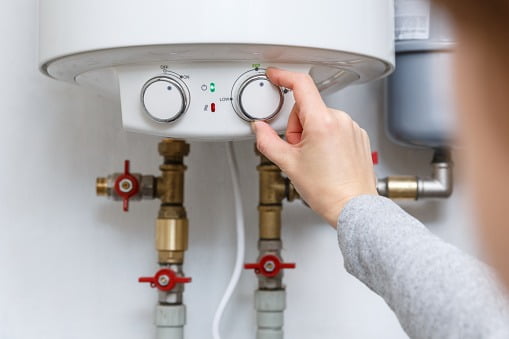As the temperatures begin to drop and even the last holdouts begin to switch on their central heating systems ready for the dead of winter, many people will be thinking of the best way to lower the cost of their heating.
There are a lot of options, with even more mixed messages surrounding them, but the best way to save money in the short term is to ensure that your boiler has had its gas safety check from an accredited engineer and if your boiler has reached its efficiency tipping point, consider upgrading.
Improving insulation, running the boiler efficiently and reducing the heating flow temperature down to a level that keeps the home warm but does not waste hot water and lead to overheating homes, whilst at the same time not forcing the boiler to cycle too much, all will lead to greater benefits per pound than replacing a working boiler.
Typically, unless you are significantly renovating your home or your boiler has reached a point where it requires progressively more expensive repairs, replacing your boiler would take quite some time to offer benefits, especially if you need to replace more than just the unit itself.
This is part of the reason why hydrogen boilers have appealed to some people as a potential future of heating. They work like gas boilers, but as long as the hydrogen is generated via green sources such as electrolysis, they can provide considerable carbon reductions.
Once hydrogen generation is deployed at scale, there is the potential to dramatically lower the cost of the gas used to heat homes, but whilst there are a lot of hypothetical positives to hydrogen, making the big switch across is unlikely to be as easy as some people have been led to think.
More Than Flipping A Switch
One of the big selling points and bigger questions with hydrogen gas is how easy it would be to do a hypothetical switchover and transition everyone from natural gas to hydrogen gas. This is a question with many different answers, but there are three main ones to consider.
From an infrastructure standpoint, according to some preliminary feasibility studies, there does not appear to be much that needs to change about the main pipelines to make it possible to transport hydrogen across the National Grid.
This means that the vast majority of the infrastructure to transport hydrogen is already in place, and only small adjustments would be needed as the hydrogen/methane blend increases.
As well as this, much like how petrol is mixed with biofuel up to a certain amount that all cars can manage without modification, all boilers outside of some particularly old models are capable of handling a hydrogen gas blend.
This actually led to controversy as major boiler manufacturer Worcester Bosch was criticised for marketing some of their boilers as “hydrogen-blend Ready” when in reality any modern boiler is capable of a 20 per cent hydrogen blend.
This leads up to the bigger question of what happens when there is a big switchover to hydrogen, one that goes beyond the 20 per cent tolerances that require little to no adjustments.
One proposal in this regard is to develop “hydrogen-ready” boilers (not to be confused with “hydrogen-blend ready”) which would work as conventional gas boilers but would only need minor adjustments and a few small parts replaced to work with hydrogen as well.
Given that even a 20 per cent blended hydrogen rollout isn’t a guarantee yet, it will be an exceptionally long time before hydrogen boilers hit the market, particularly given delays and cancellations to widespread testing, as well as a need to generate enough hydrogen to make the system work.
As for costs for new boilers, there was a pact in 2021 between the leading manufacturers that new hydrogen boilers would not cost any more than a gas boiler, and were this to be the plan going forward there would likely be incentives and discounts to replace an existing boiler, although none have been confirmed as of yet.
However, it would need to be a complete replacement, as hydrogen burns similarly to natural gas but has different enough properties that it cannot simply be used as a drop in fuel, despite initial claims and some rather suspect marketing.
As well as this, gas pipework around your home will likely need to be altered and replaced for the same reason, which is something that harms the argument that it will be as simple a change as replacing a boiler.
Ultimately, as of right now, sticking with natural gas but being efficient and mindful of its use is the best way to lower bills and your carbon footprint.

